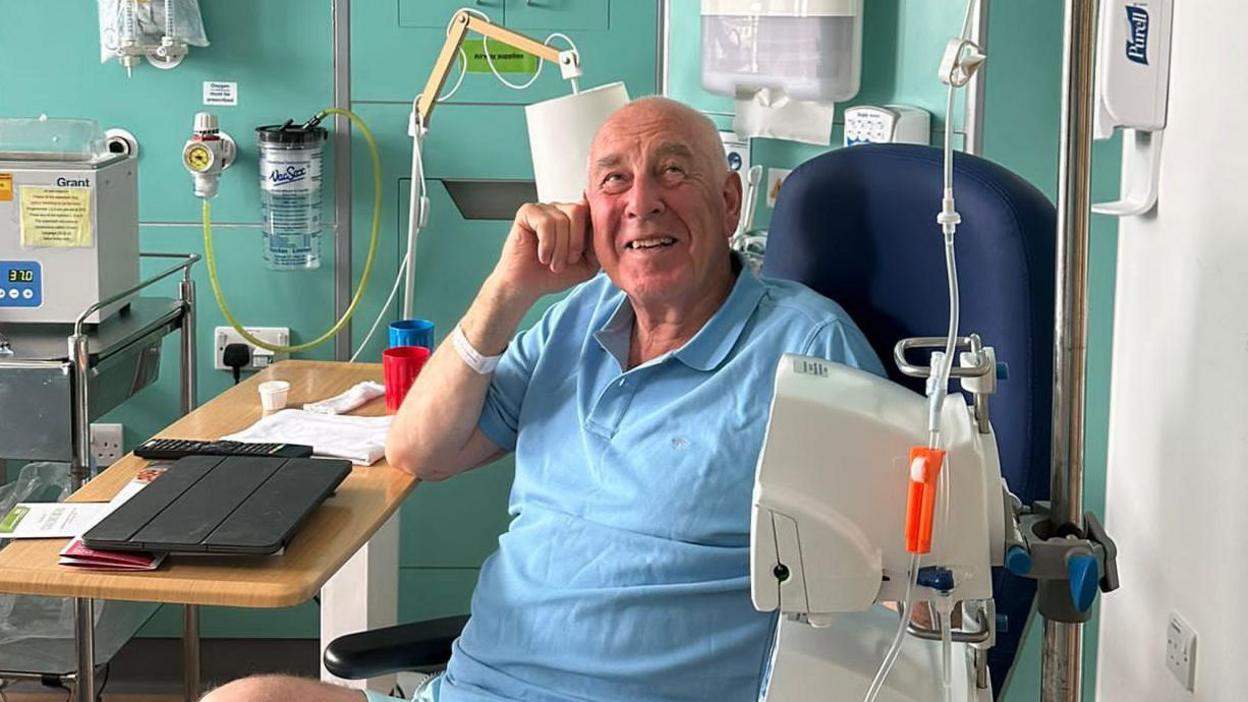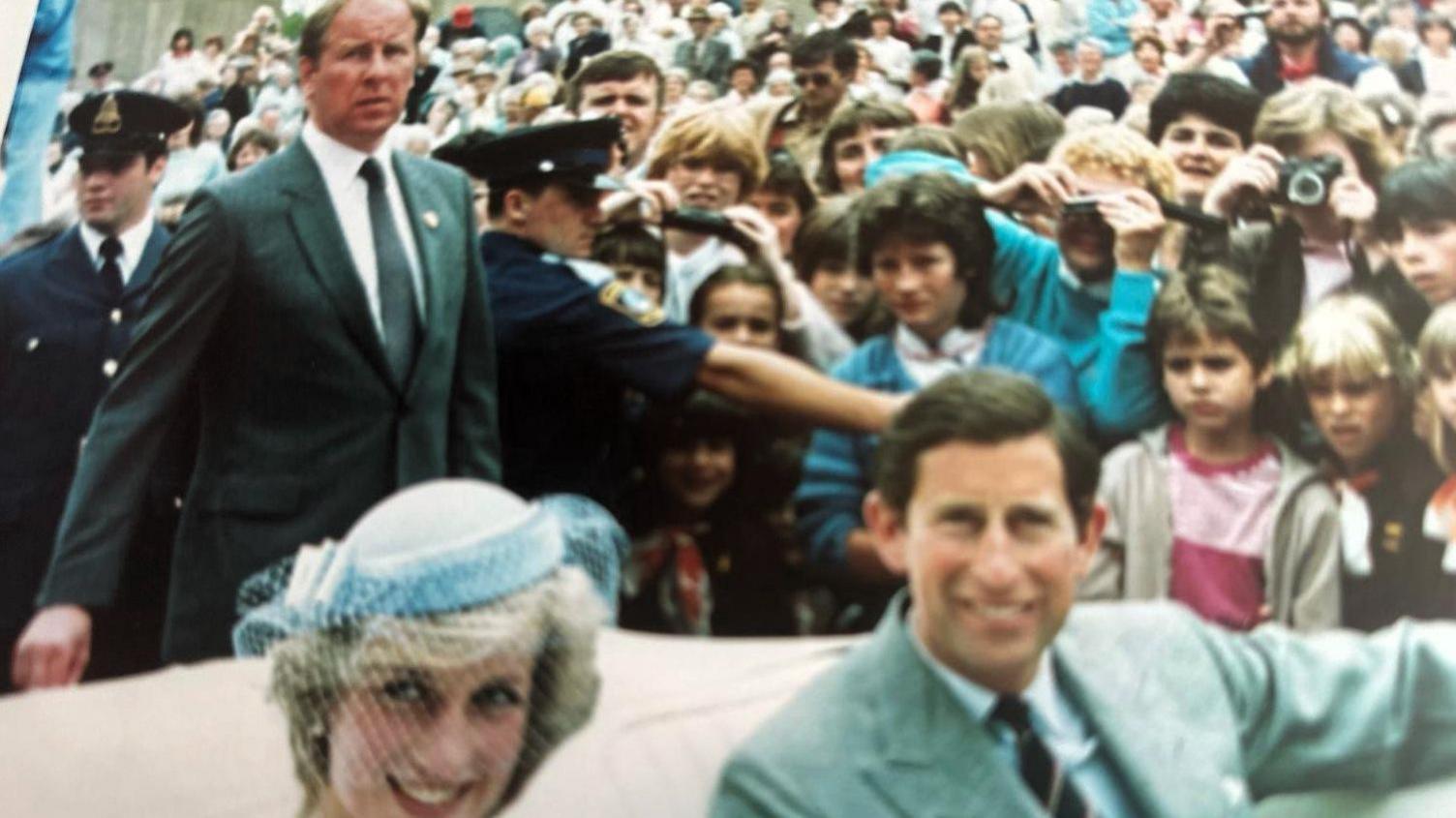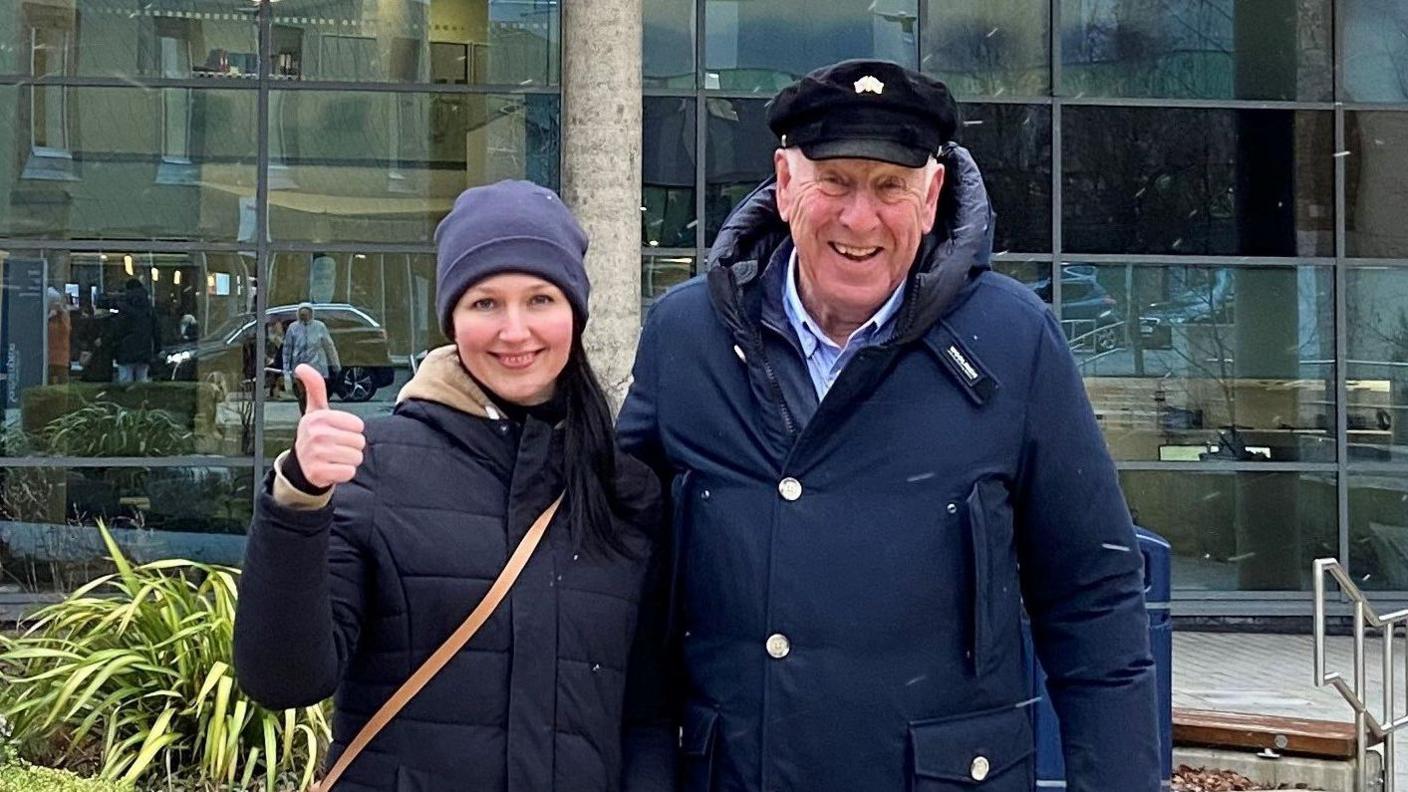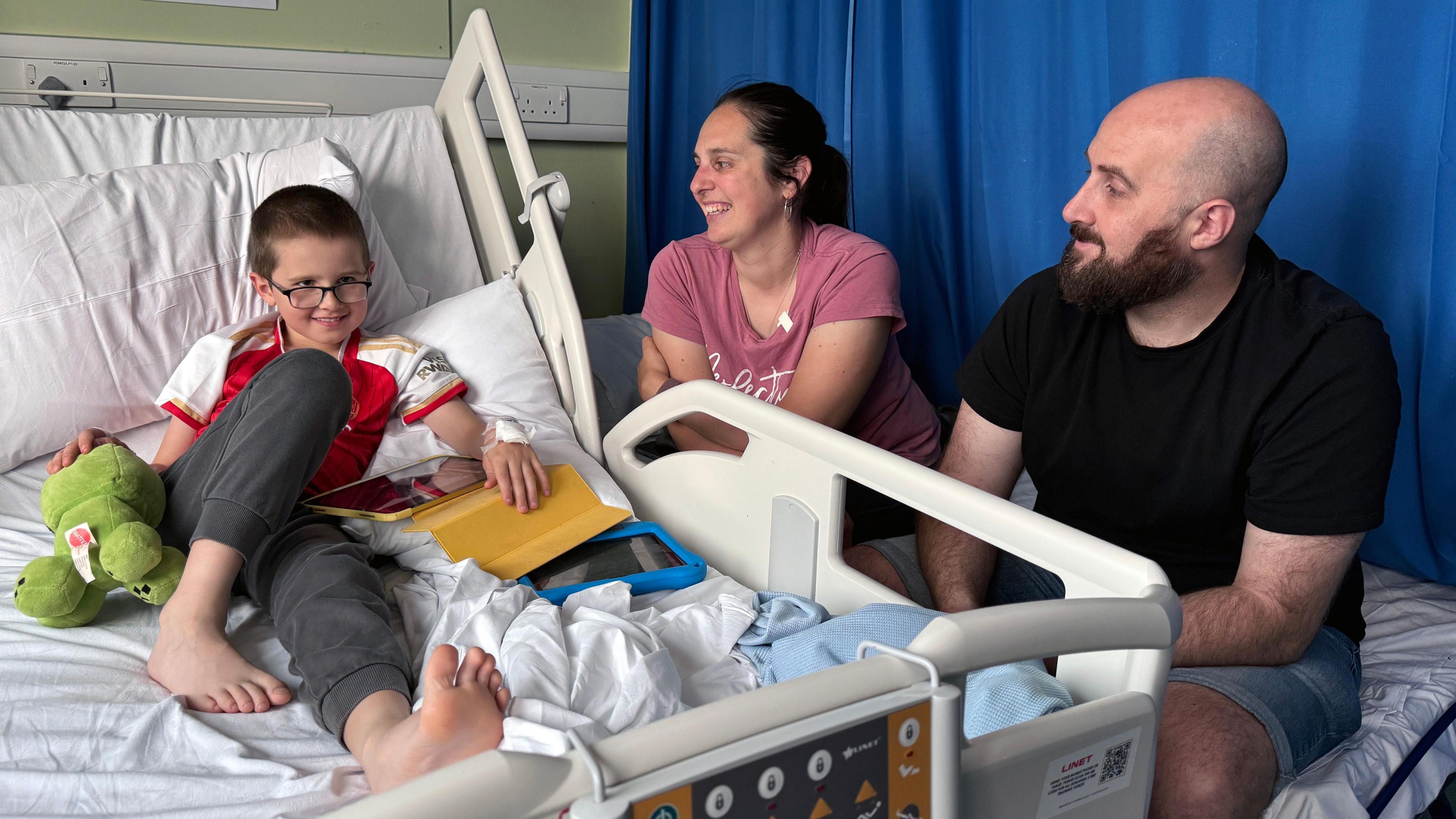King's former security guard free of terminal cancer

Allan Peters was diagnosed with incurable cancer after developing nausea, weight loss, tiredness and an abdominal mass
- Published
A former royalty protection officer who was told he had terminal cancer has been declared free of the disease.
Allan Peters, from Sturminster Newton in Dorset, had started arranging his own funeral following a stage 4b diagnosis of lymphoma.
The 76-year-old even received a letter of condolence from his former employer, King Charles III.
But two years after receiving a "revolutionary" therapy at University Hospital Southampton, Mr Peters is in long-term remission.

Mr Peters was one of the then-Prince of Wales’ Personal Protection Officers (PPOs) from 1979 to 1981
He was diagnosed with with stage 4b diffuse large B-cell lymphoma, a cancer of the lymph glands, in 2022.
It was advanced, having spread to form lesions on his bones, and he was told there was no cure.
Having heard about his ill-health, Mr Peters said King Charles penned a letter to him, sending his best wishes.
"It shows you the kind of thoughtful and caring man our King is, to have taken the time to write to me,” he said.
Following the news that King Charles also had cancer, Mr Peters wrote back to him, which Buckingham Palace acknowledged.

He was given the all-clear at University Hospital Southampton's Centre for Cancer Immunology
University Hospital Southampton was the first hospital in the South East to offer CAR (chimeric antigen receptor) T cell therapy.
The treatment uses a patient’s own modified immune cells to kill off their cancer, although it is not suitable for everyone.
Mr Peters was one of the first patients to try it, after chemotherapy proved only partially successful.
After a five-week long hospital stay, a scan showed he was completely cancer free.
Follow-up scans at three and six months showed he was in long-term remission.
Mr Peters described the treatment as a "miracle cure".
“I am so grateful to the medical teams that made this happen," he added.
Get in touch
Do you have a story BBC Dorset should cover?
You can follow BBC Dorset on Facebook, external, X (Twitter), external, or Instagram, external.
More on the University of Southampton
- Published16 August 2024

- Published1 August 2024

- Published13 July 2024
